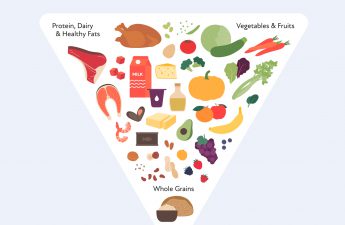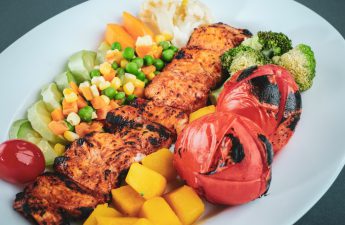This week I’m excited to have Jen Ede, Editor of TOPS News magazine and fellow TOPS member, as my special guest blogger.
5 Tips for Choosing Organic Foods on a Budget

by Jen Ede
If you’ve been wanting to incorporate more organic food into your diet, but are balking at the price tag, here are some tips to get you started:
- Get to know the Dirty Dozen and the Clean Fifteen. The Dirty Dozen and Clean Fifteen are shopper’s guides put out each year by the Environmental Working Group that list produce carrying the most, and the least, amounts of pesticides. Generally, fruits and vegetables with thin skins, like strawberries, peaches, spinach and tomatoes, have the most pesticide residues, even after washing and peeling. If you’re trying to reduce your exposure to pesticides, it makes sense (or cents) to choose organic here. Avocados, cantaloupes, cabbages and onions, for example, have thicker skin and absorb fewer pesticides, so if you’re on a budget, buying these conventionally is OK.
- Buy local. Many farmers at your local farmers’ market grow their produce using minimal or no pesticides, but because of the high price of organic certification, can’t officially use the label. Get to know your farmers and their growing practices, and see if this isn’t a way to save money on organic foods. Bonus—once you’ve gotten to know your farmers and their food, you can share other things, like delicious recipes. Another sure way to save money is to make sure you eat everything you buy! Visit www.ams.usda.gov/local-food-directories/farmersmarkets to find a farmers’ market near you.
- What’s on sale? Find lower prices on organics by perusing flyers at your local grocery story and wellness discounts that might be available through your insurance company. If your eating plan or recipe calls for one type of vegetable or a fruit, and you see that another is on sale, you can usually swap one in for the other to save a few bucks.
- Hit the bulk bins. Flour, grains, legumes and other pulses don’t cost much but pack a nutritious punch, and buying organic versions of these items costs just a little more. Visit your local grocery store or co-op and bulk up your pantry without breaking your wallet.
- Celebrate small change. Remember that an ideal “clean” diet isn’t really possible to achieve, so be proud of yourself for any and all progress you’re able to make in reducing pesticides and eating healthier foods.


